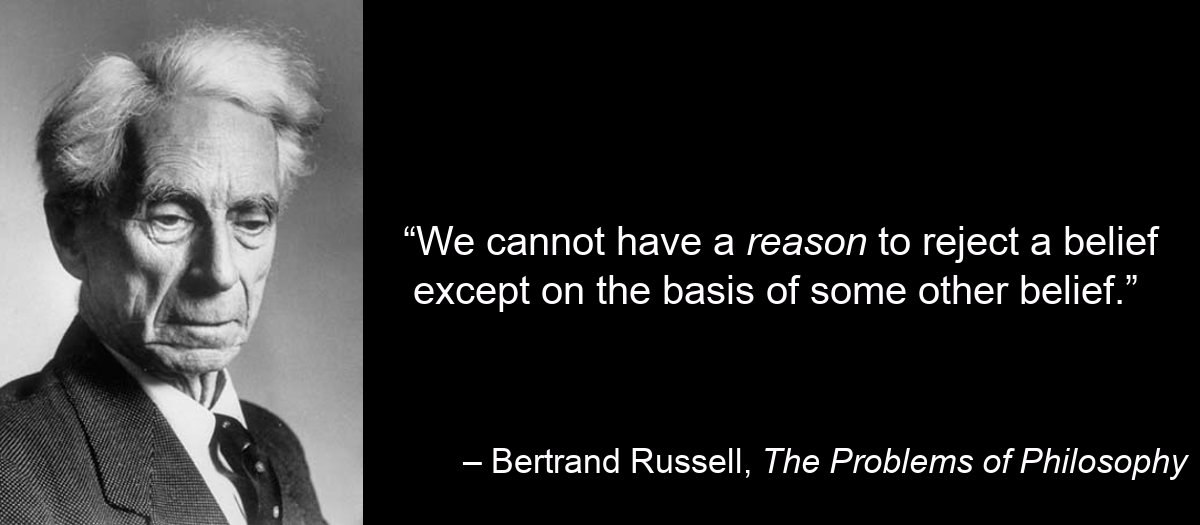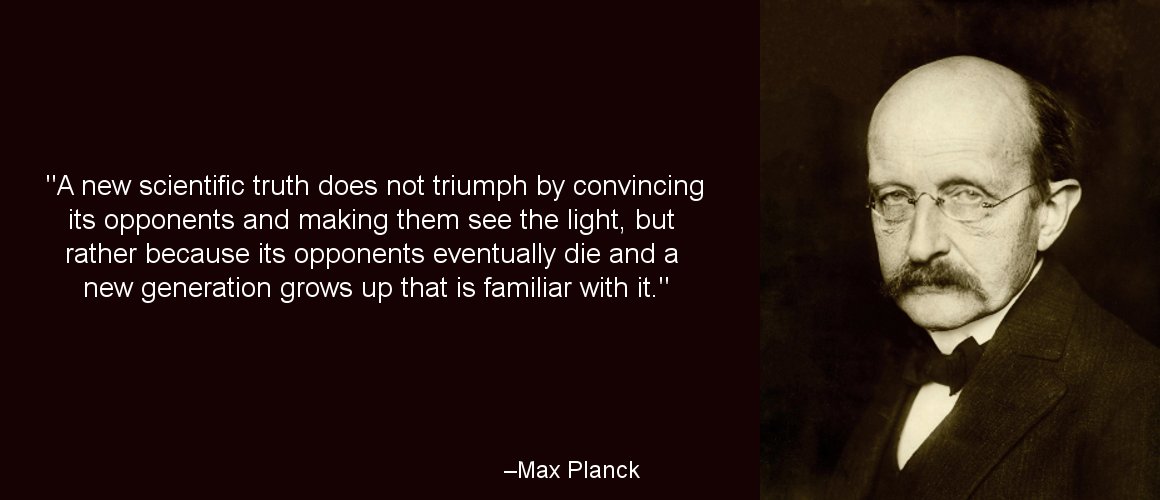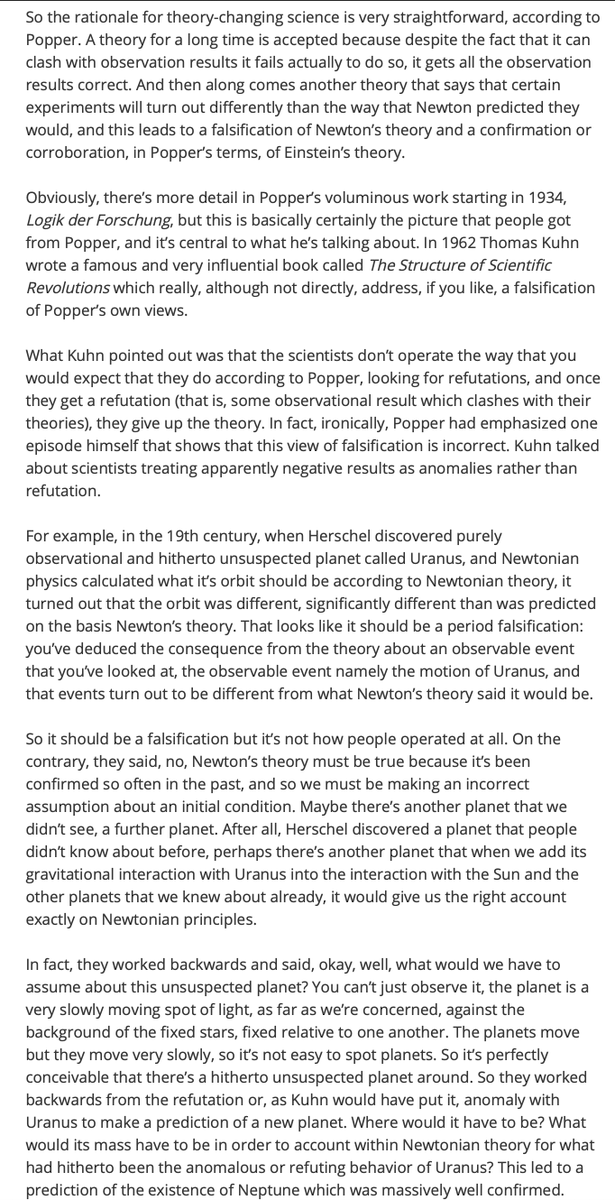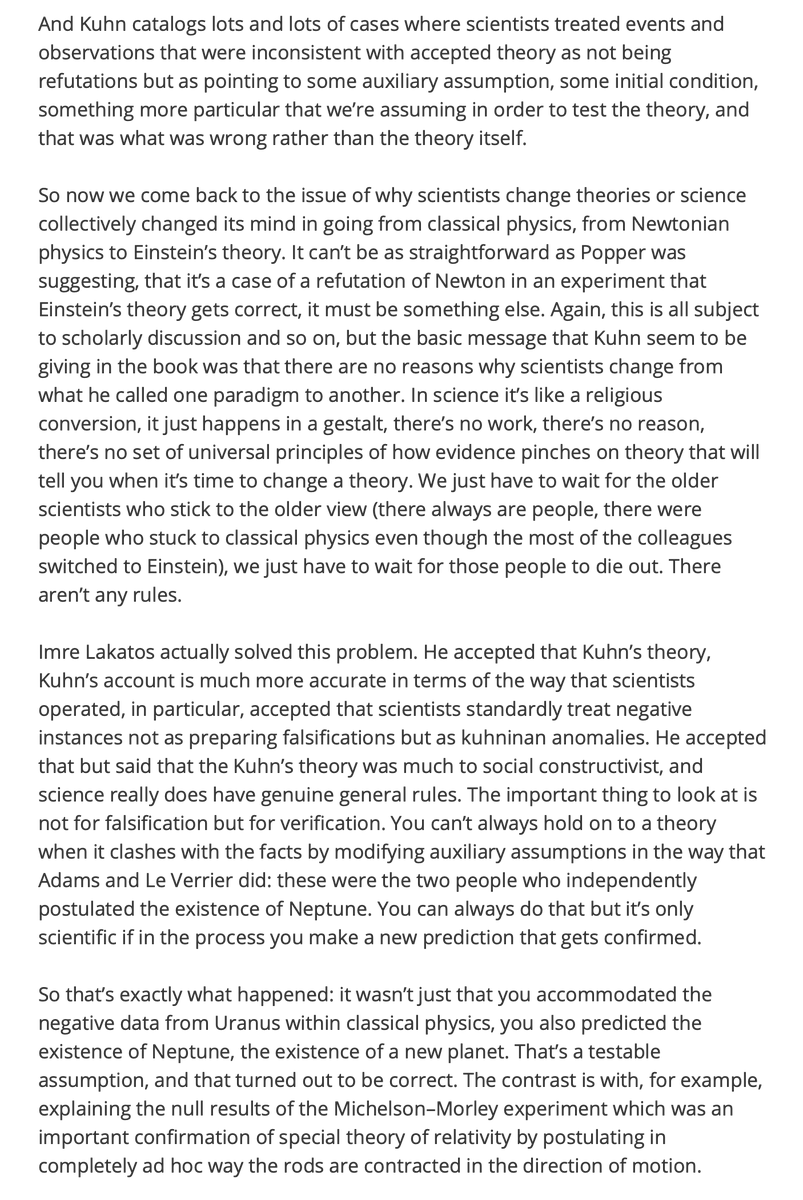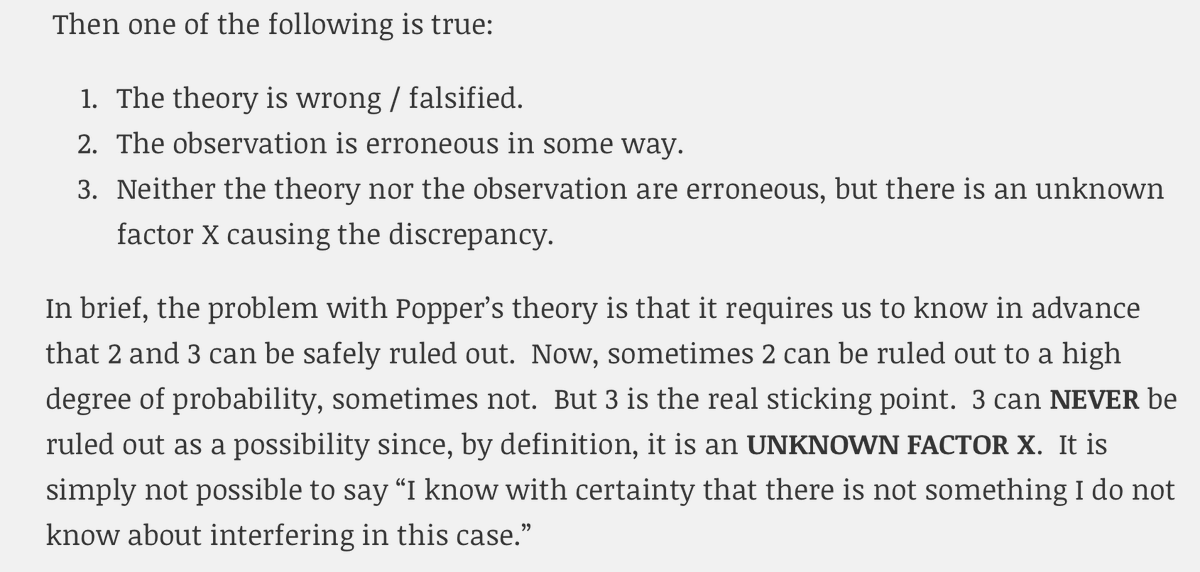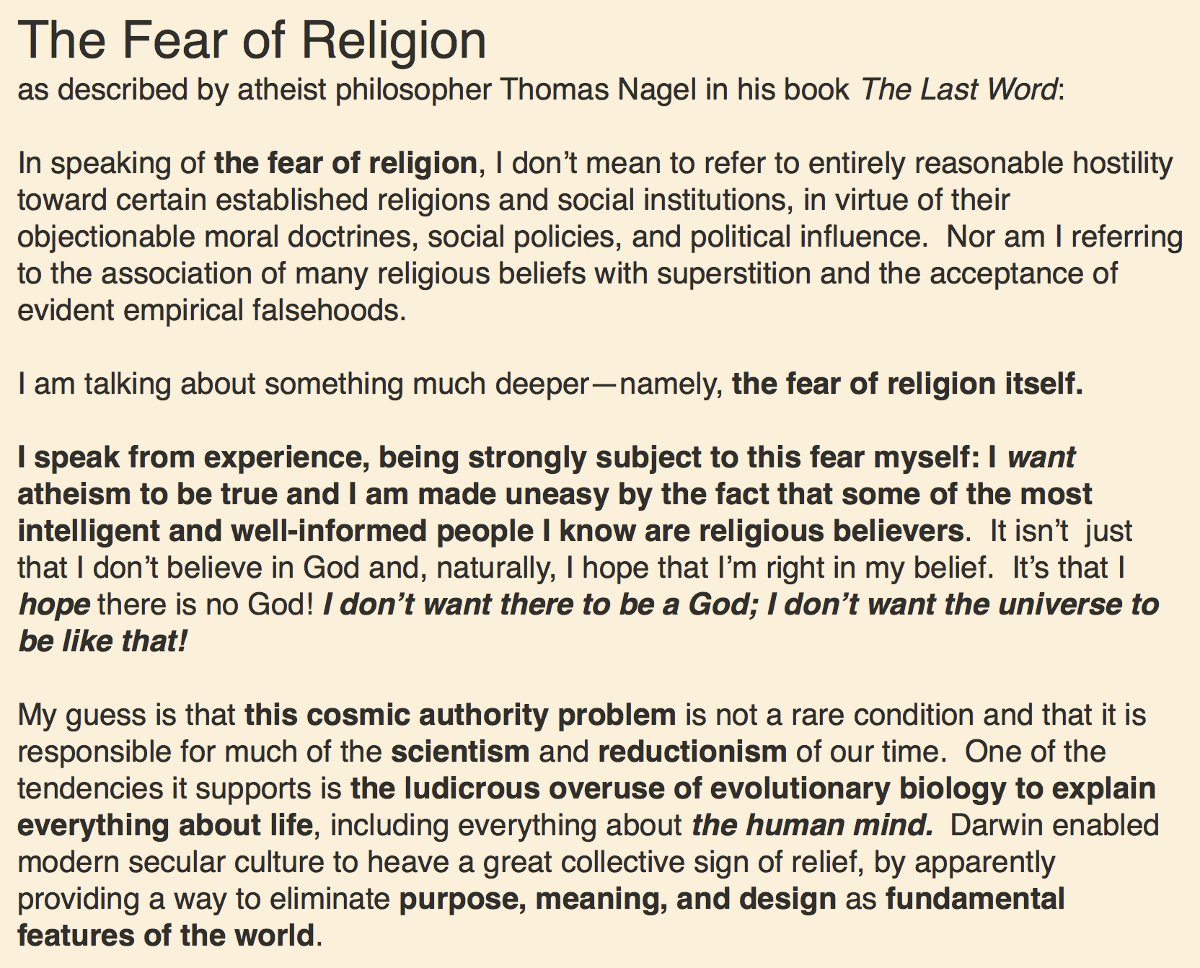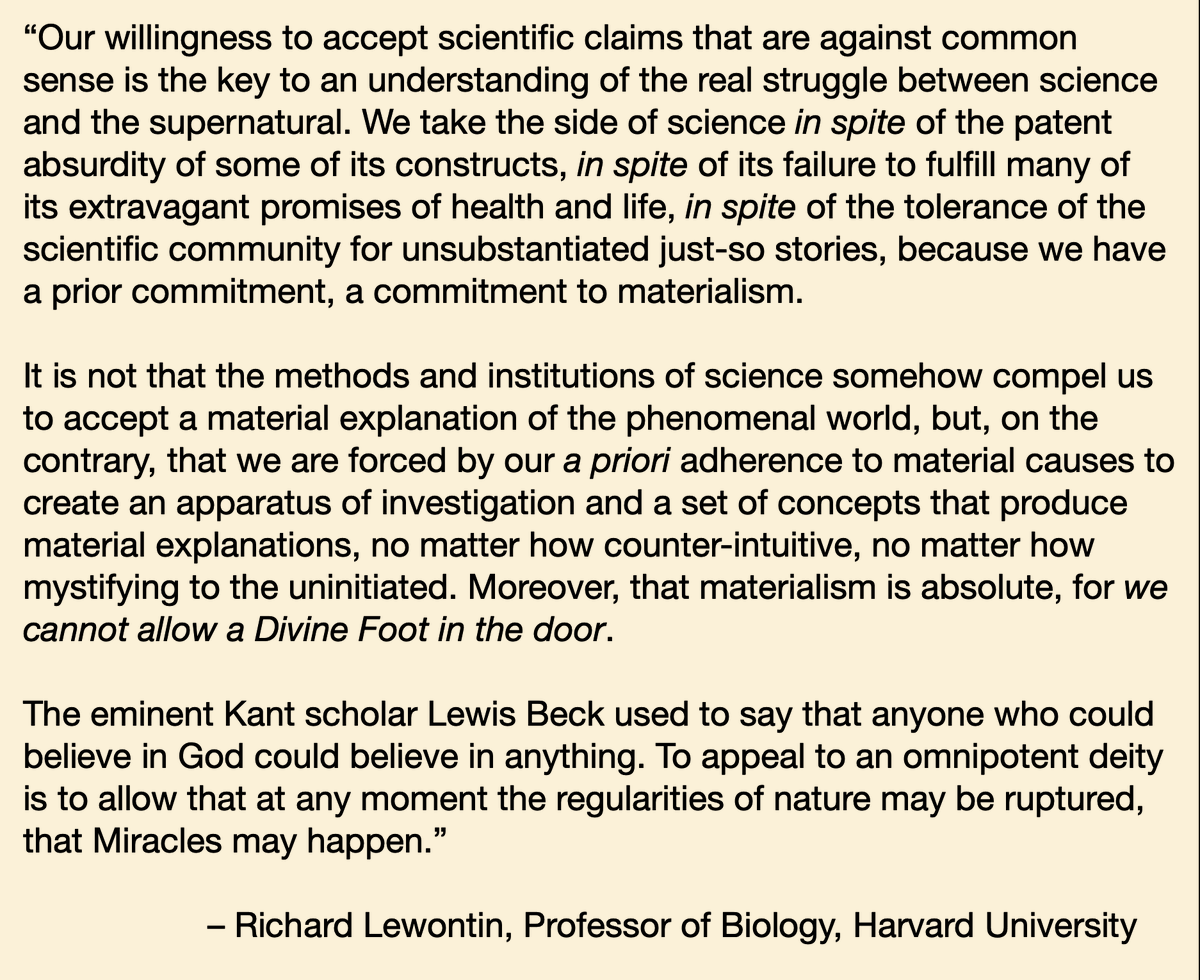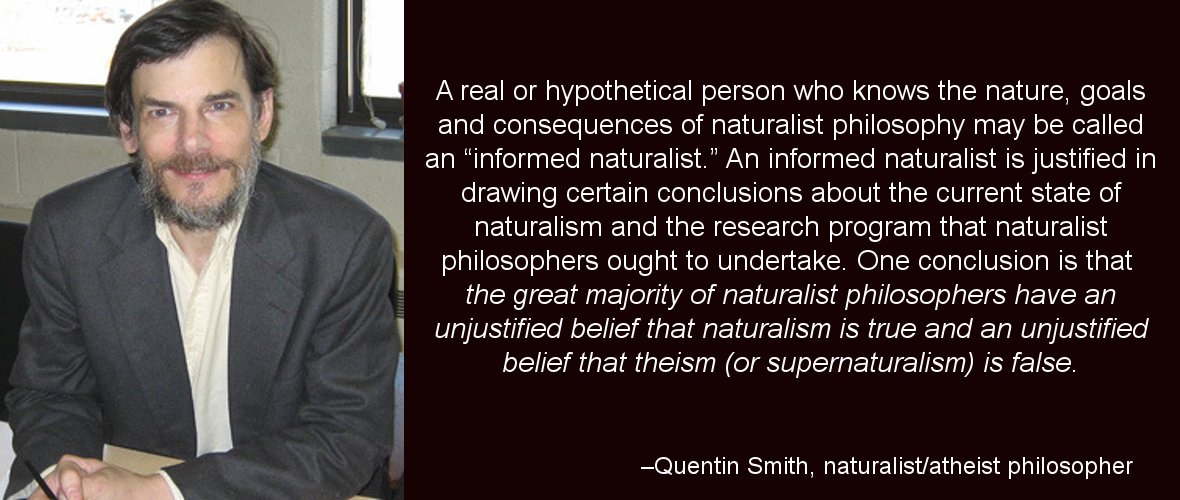What doxastic involuntarists (DIs) trade on is a distinction between an immediate act & complex action. Now, ACTS are the province of the WILL, and believing is an ACT. That is our first clue that belief is subject to the Will. However, the matter isn't as simple as DIs pretend. https://twitter.com/AtheistExperie2/status/1357599342845177857
Let is clarify what is meant by an "immediate act" and "complex action" (hereafter just "act" and "action") by example.
An Act would be eating a salad.
An Action would be "losing 30 lbs."
Both are voluntary, but losing 30 lbs. cannot be willed into being AT ONCE.
An Act would be eating a salad.
An Action would be "losing 30 lbs."
Both are voluntary, but losing 30 lbs. cannot be willed into being AT ONCE.
Actions, therefore, require a sustained application of the Will, and many subordinate Acts. Everyone knows this. Actions are things that cannot be done "at will" but are done as the result of SUSTAINED WILLING OF THE SAME GOAL AND ACTING TOWARD IT.
So Actions are, in fact, voluntary. "Writing a book" is just as voluntary as "hitting the w key"—the difference is one of IMMEDIACY vs MEDIACY, not voluntary and involuntary.
Believing something important or "big", like a worldview or world-changing view, is—and everyone knows this too—not an easy thing to accomplish, because it requires a significant restructuring of one's prior web of beliefs and their hierarchy.
Belief formation also depends upon the level of skepticism or scrutiny to which we subject a proposed belief. It is well-known BOTH from our experience as well as science that we subject beliefs which are discordant with beliefs we already accept with a HIGHER degree of scrutiny.
And one's degree of skepticism is within one's control to a large degree. It isn't hard to consciously "dial one's skepticism up to 11." The fact that most people do not consciously control their thoughts very well is not an indication that the cannot.
Controlling one's thoughts is rather akin to controlling one's body. Most of us are so-so at controlling our bodies: we can do it well enough to get by. But a professional dancer or martial artist or athlete can control their bodies in a superior, more practiced way.
The martial arts example is useful to note another thing (for yourself, think of driving a car): the martial artist or car driver acts in a way that is VOLUNTARY, but (typically) in a way that requires little conscious attention. Such HABITUATED ACTIONS don't require thought.
And yet they are voluntary. No one thinks the martial artist or car driver isn't IN CONTROL OF THE ACTION of "doing martial arts" or "driving a car."
Again, belief works a lot like that. We have settled HABITS (really ἕξεις) of BELIEF.
Again, belief works a lot like that. We have settled HABITS (really ἕξεις) of BELIEF.
Coming to believe something CONTRARY TO or even NOT IN ACCORD WITH one's SETTLED HABITS of thinking is much harder.
When I started Comp Sci, the professor asked if I had ever done any programming. I said I had. I'd taught myself BASIC. He winced, and said that was WORSE OFF than someone who never programmed. I would have to UNLEARN the habits I had acquired from BASIC, to learn properly.
One acquires a new belief, often, when it passes from what William James calls a "dead option" to a "live option"—something you *could* believe. Then you start the process of seeing what you'd have to change or modify or reject *in order to* believe it.
If you discover the beliefs you have that would tend to make you not believe the new belief turn out to be weak, flimsy, suspect, dubious, etc., often you will start reject them, one by one. The more you modify your background beliefs the more new beliefs become "live options."I
Again, this is entirely within your control—the action of the Intellect is not: it can only tell you things *about* beliefs, e.g. to what extent they are transparent, or propose grounds and defeaters for them. The Will choses how to ACT on this information.
Consider the recent election: You *either* believe that it was mostly fair election and Joe Biden got more votes that any person in history, *or* you believe the election was rigged in some way. What would it take to change your mind?
The one trick of the Doxastic Involuntarists is to point out you can't change a belief "just like that." They aren't wrong about that, but doxastic involuntarism just doesn't follow from it. Belief formation takes place over a period of time, with many Acts of belief testing.
Our recent DI's example was believing the moon is made of cheese. Could you do that? Beliefs are rarely formed on the basis of arguments (despite what people BELIEVE about that) but I can make an argument for it, just for fun.
Many people *do* actually believe that "on the quantum level, the law of noncontradiction does not hold." I've been told that many, many times, including dozens of times here on Twitter. So it seems a fairly common belief. Let's assume it for a moment. ⬇︎
Let there be a quantum event where the law of noncontradiction is violated, so p & ~p are both true. Let C be "the moon is made of cheese."
1 p & ~p [QM]
2 ~p [Simplification, 1]
3 ~p v C [Addition]
4 p ⇒ C [Equivalence]
5 p [Simplification, 1]
6 ∴ C
1 p & ~p [QM]
2 ~p [Simplification, 1]
3 ~p v C [Addition]
4 p ⇒ C [Equivalence]
5 p [Simplification, 1]
6 ∴ C
You'll find I have just LOGICALLY PROVEN that the moon is made of cheese—assuming that QM really does violate the law of noncontradiction, which, I'm told repeatedly, is not only not insane, but actually the case. 
I will continue to regard this a reductio ad absurdum of P1.

I will continue to regard this a reductio ad absurdum of P1.
The Will, in its power do DECIDE things also is able within a wide scope to DECIDE INCONSISTENTLY. I mention this re: levels of skepticism we apply to unwelcome beliefs. We can also change the standards of what counts as warrant or defeaters and how to weight them.
This is one reason Popper's FALSIFICATION CRITERION could never work. Proponents of a theory will simply not allow that theory T has been falsified, whereas opponents of the same theory will claim it has been on very weak grounds.
Hence Max Planck's famous dictum:
Hence Max Planck's famous dictum:
Often summarized as "science progresses one funeral at a time." In our time, we should also add "or degenerates," given that science is not immune to the total irrationalism into which our civilization is generationally plunging. And science is is blameworthy here, so boo hoo.
But to give an example of how the Will might play into scientific belief in a theory, consider Lakatos' famous answer to Popper. This is not Lakatos, but a simpler write-up of it:
I've reached my Tweet chain limit, so have to start again to go further. Back to the subject. Suppose an observation O seems to falsify theory T,
You can go either of these three ways. Somehow the theory that bigfoot is a myth never seems falsified by the many, many observations of the creature. Except by bigfoot believers.
Note further that these stack. Is "It is not the case that intelligent non-human aliens visit the earth" is falsified? We can't say we don't have any observations, because we have many reports of such. We can say we don't have many *good* observations that we can make at will.
The UFO believer can posit *reasons* for this: (1) the aliens have advanced technology, so they are very good at remaining hidden, and (2) where they have slipped up, the government has systematically suppressed the knowledge.
You can quickly get into loony theories this way, but that doesn't trouble the loon, because it is also well-known that many absolutely true theories were regarded as loony when they were first advanced.
Galileo nastily mocked Kepler's (literally) loony theory that the tides are caused by lunar motion, calling it "childish" and "superstitious" and many less kind things than those. You'd have to be a LUNATIC to think Kepler's loony lunar theory was right!
Except it was and is.
Except it was and is.
Furthermore, the Will plays a decisive role in one's basal beliefs. People, it appears, just "decide" that certain things are true and they won't compromise on them, NO MATTER WHAT THE EVIDENCE.
Hardcore naturalists are like this. Some admit it openly, but honesty is rare:
Hardcore naturalists are like this. Some admit it openly, but honesty is rare:
Which adds up to the rather obvious point that, by and large, people believe what the want to believe, or better, what they will themselves into believing:
The FIRST STEP to believing in God, for a modern person who does not find this a live option, it seems to me, is to discard the VERY cramped, local, parochial picture of reality you may have grown up with as half-educated, 20th century Westerner.
This isn’t that hard to do.
This isn’t that hard to do.
But many people simply *won’t* take the trouble, just as many brought up in a religious context *won’t* take the trouble to question their beliefs—although those raised religiously have more INCENTIVE to do so, since religious belief “cramps” acting however you please.
As most who follow me know (or should) I did *not* have a particularly religious upbringing. My mother decided I should “get some church” and did take me to a Methodist Church for a few years—but what they taught seemed incoherent, and when I looked into it, I quickly dropped it.
And I still think Protestantism is a particularly ridiculous form of Christianity, when it even is a form of Christianity. My path to faith went from Nietzsche and Heidegger (who exploded my confidence in the modernist view of the world, and showed me reality is MUCH STRANGER) ..
.. backwards to Aristotle and Plato, both of whom Nietzsche and Heidegger take with UTMOST seriousness. It seems absurd to many moderns to do that: but they do not understand HOW MUCH THEY ARE Aristotelians and Platonists, still.
Heidegger and Nietzsche have significant disputes with Aristotle and Plato (at the bottom, it is Plato vs Nietzsche, something of which Nietzsche was aware).
Already taking Nietzsche and Heidegger with utmost seriousness it was compelled to take Aristotle and Plato seriously.
Already taking Nietzsche and Heidegger with utmost seriousness it was compelled to take Aristotle and Plato seriously.
Not to put to fine a point on it, the accounts of Aristotle and Plato eventually overbore the arguments of Heidegger and Nietzsche in *many* (not all) significant ways for me. I joined Team Plato and rejected Team Nietzsche (as much as he taught me, and as often as he’s right).
Once I was thinking like an Ancient, the ground was laid for my being able to think like a Christian—albeit not yet.
I had to work my way forward, recapitulating in my own thought the actual history of philosophy, through Stoicism and Neo-Platonism.
I had to work my way forward, recapitulating in my own thought the actual history of philosophy, through Stoicism and Neo-Platonism.
Once your thinking reaches late Antiquity, Christianity becomes a LIVE OPTION, whether you want it to or not.
I’ve mentioned my “pre-conversion” experience before. I was thinking hard about a number of deep questions one day, walking home from campus in the rain, when it hit me like a thunderbolt. I said aloud, to myself (and I self-quote):
“Ah, shit. Christianity is true, isn’t it?”
“Ah, shit. Christianity is true, isn’t it?”
It was at that point that my Intellect essentially announced to me that Christianity was not only NOT obviously false, but VERY POSSIBLY true, and VERY LIKE the best possible account of reality.
It was up to me what I did with that announcement. I could have willed it away.
It was up to me what I did with that announcement. I could have willed it away.
But Nietzsche, the arch-atheist, had DRILLED IT INTO ME that philosophical honesty, REDLICHKEIT, is one of THE philosophical virtues, and I would not fail my master—even if it meant becoming his enemy. That is, after all, what he demanded of me.
I was greatly help in this process by my discover of Orthodox Christianity, which is poorly known in the Western world, and which is a kind of Christianity that developed in great continuity with the Greek philosophical traditions. Since the Eastern Roman Empire didn’t fall.

 Read on Twitter
Read on Twitter